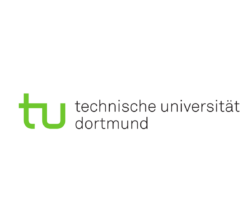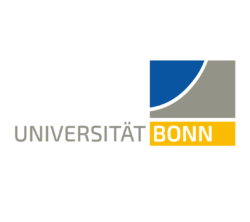ML2R became the Lamarr Institute – find all current information here!
What is the Competence Center Machine Learning
Rhine-Ruhr (ML2R)?
Team and Organization
Who does research at the ML2R, who is part of the leadership team and how is the competence center organized? We introduce you to the people who are part of the ML2R:
Research at ML2R
The scientists at ML2R conduct research on Machine Learning (ML) solutions and thus on the technological foundations for Artificial Intelligence. The guiding idea for our research is to build hybrid and modular systems that use both data and knowledge and can be flexibly adapted to a broad range of applications. We design ML applications that are trustworthy, resource-efficient, and work on a wide variety of platforms – from mobile devices to quantum computers.
Technology Transfer: How Does Theory Become Practice?
Machine Learning holds the key to intelligent products and processes, new business models and a head start in international competition. The research results are therefore directly leveraged for practice-oriented applications and provide the basis for the development of new data-based services. Particularly for small and medium-sized enterprises, ML2R offers access to strategies, knowledge and data so that they can successfully apply ML technologies in practice. Our focus is on the fields Industry 4.0, Multimedia Analysis, Logistics, Cognitive Process Automation and Astrophysics.
Spokespersons of the Center
Prof. Dr.
Katharina Morik
Prof. Dr. Katharina Morik is Professor of Computer Science at the Technical University of Dortmund.
Prof. Dr.
Stefan Wrobel
Prof. Dr. Stefan Wrobel is Professor of Computer Science at the University of Bonn and Director of the Fraunhofer Institute for Intelligent Analysis and Information Systems IAIS.
The Partner Institutions
The ML2R team members come from the four partner organizations: the TU Dortmund University, the Fraunhofer Institute for Intelligent Analysis and Information Systems IAIS, the Fraunhofer Institute for Material Flow and Logistics IML and the University of Bonn. The teams from Dortmund, Bonn and Sankt Augustin are interdisciplinary and work cooperatively across locations.
TU Dortmund University – Faculty of Computer Science
With 22 professorships, the Faculty of Computer Science at the Technical University of Dortmund is one of the largest computer science faculties in Germany. Research and teaching focuses on data analysis, modelling and simulation. The Chair of Artificial Intelligence of the faculty deals with the field of Machine Learning, in particular with the practical implementation of learning methods and the development of algorithms.
The Dortmund Faculty of Computer Science was one of the first university computer science departments in Germany. It offers a spectrum of computer science that only a few locations in Germany have. The faculty’s task is to further develop and teach the formal and constructive foundations for the design, implementation and use of even very large and complex information technology systems. The research includes basic research as well as application-oriented problems. The Faculties of Computer Science, Statistics and Mechanical Engineering work closely together and offer joint courses on Data Science. Results are published internationally or are incorporated into products within the framework of co-operations with companies. The Chair of Artificial Intelligence has been significantly involved in the development of Machine Learning in Europe for many years.
Faculty of Computer Science: www.cs.tu-dortmund.de/nps/en
Chair of Artificial Intelligence: www-ai.cs.uni-dortmund.de
Fraunhofer IAIS
The Fraunhofer Institute for Intelligent Analysis and Information Systems IAIS is one of the leading institutions for applied research in the field of intelligent data analysis and knowledge development. About 250 data scientists and IT specialists support businesses and organizations with tailor-made technical solutions for the optimization of products, services and processes as well as for the implementation of their digital transformation.
The focus is on solutions that help clients from business, industry and the public sector to manage information and make decisions through the comprehensive analysis and linking of large data sets (Big Data). Techniques of Artificial Intelligence and Machine Learning create new possibilities for knowledge discovery and the development of new data-driven business models. To optimize corporate and security procedures, the experts at Fraunhofer IAIS use flexible process models that enable in-depth analysis and increase business success. With its staff, Fraunhofer IAIS bundles competences from all engineering disciplines, especially computer science, mathematics, natural sciences, business administration, geosciences and social sciences with profound industry knowledge. Research focuses on data science, Artificial Intelligence, Machine Learning/Deep Learning, linked data, multimedia pattern recognition as well as system modeling and analysis.
University of Bonn – Institute for Computer Science
The Institute for Computer Science is a scientific institution of the Faculty of Mathematics and Natural Sciences of the University of Bonn. The research areas at the institute are divided into four areas: Algorithms, Graphics-Vision-Audio, Information and Communication Management and Intelligent Systems. The competence center ML2R cooperates closely with the department III “Intelligent Systems”, which is headed by Prof. Stefan Wrobel.
The Bonn Institute for Computer Science was founded in 1975 and is thus one of the first computer science departments in Germany. Nowadays, more than 1900 students study computer science as their main subject: Computer science is, in terms of the number of students, the largest subject of the Faculty of Mathematics and Natural Sciences at the University of Bonn. At the institute, more than 20 professors in six departments teach and conduct research with approx. 100 scientific staff on permanent and third-party funded positions and are supported by approx. 25 technical and administrative staff. In addition to Machine Learning and Artificial Intelligence, the research agenda of Division III “Intelligent Systems” includes the entire intelligent data and learning chain: data storage and linking, analysis and pattern recognition as well as image processing. The Bonn-Aachen International Center for Information Technology B-IT is a partner of Bonn University and is closely connected to the cooperation network of the Competence Center ML2R.
Bonn-Aachen International Center for Information Technology: www.b-it-center.de
Institute of Computer Science: www.informatik.uni-bonn.de/en
Fraunhofer IML
The Fraunhofer Institute for Material Flow and Logistics IML is regarded as the first address in integrated logistics research and works in all fields of internal and external logistics. In line with the Fraunhofer idea, on the one hand, solutions to problems for direct use by companies are developed, on the other hand, advance research of two to five years is carried out, in individual cases beyond that.
Founded in 1981, the institute currently employs 290 scientists and 250 PhD students, supported by colleagues in workshops, laboratories and service departments. Teams, put together according to project and client needs, create cross-industry and customer-specific solutions in areas such as material flow technology, warehouse management, business process modelling, simulation-based corporate and system planning, transport systems, resource logistics and e-business. The “Internet of Things” is coordinated Fraunhofer-wide by Fraunhofer IML.Currently, the largest logistics research initiative in Europe is the “EffizienzCluster LogistikRuhr” with 120 partner companies and eleven research institutes, in which the Fraunhofer IML plays a leading role. The three institute directors, all of whom hold professorships at the Technical University of Dortmund, have diverse research networks also in the basic research area. In addition to Dortmund, other locations are Frankfurt/Main, Hamburg, Prien am Chiemsee, Lisbon and Beijing.







